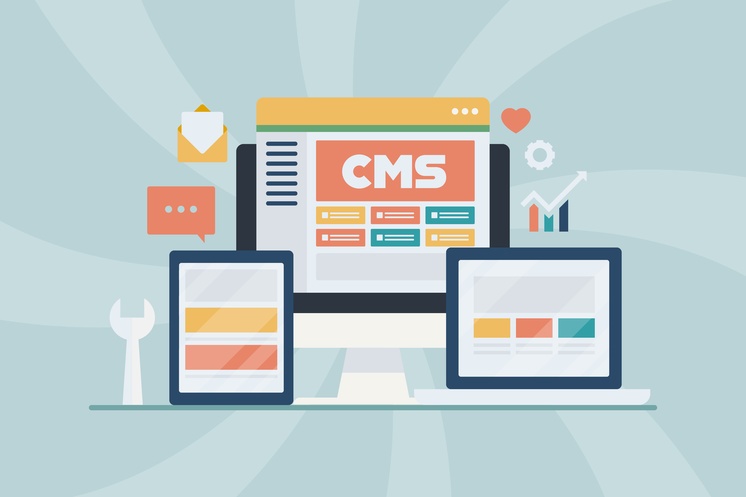4 Features to Look for in a CMS Platform
A CMS, or content management system, is a custom tailored, advanced database-driven, online system that streamlines web management. While you may not be familiar with the term “CMS”, you probably can think of a couple of CMS platforms, like WordPress and Joomla! Each of these platforms can be used to update content on a website with just a few clicks. The ease and simplicity of these CMS platforms have made it easier than ever for small businesses to keep their websites up-to-date, which is incredibly important in this digital age.

Benefits of a CMS
With platforms like Joomla, you can add and edit website content for your small business with ease. No coding skills or recurring fees are required. CMS platforms help make updating and maintaining your small business website easy and affordable.
The Difference Between a CMS and Website Builders
Keep in mind that CMS platforms are not the same as a Website Builder, which are systems that vastly limit what you can do on your website. With a Website Builder, you also do not own your own website. You are simply paying a monthly (or yearly) fee to use their platform. If you stop paying, your website will be deleted, and you’ll have to start from scratch on a new platform.
As a result, we recommend a true Content Management System over a glorified Website Builder for small businesses that are serious about their marketing and SEO. Learn more about the limitations of Website Builder platforms.
What to Look for in a CMS Platform
Most CMS platforms have a similar set of features available. However, they all have varying degrees of ease-of-use and extendable functionality. Here are a few to look for when choosing the right CMS platform for your small business.
1. SEO Tools and Compatibility
SEO, or search engine optimization, is essential for your small business’ success. It’s important to look for a CMS that has tools and design infrastructure in place that will help optimize your website and content for search engines to make it easier for your potential customers to find your small business website. Keep in mind that the CMS will not perform the SEO for you. However, a powerful and streamlined CMS can make implementing SEO related changes much faster and simpler.
2. Tools for Updates
Your CMS platform should make it easy to make changes to a webpage, even after it has been published. A good CMS will have options to quickly edit key sections of a page (i.e. text and images), without the risk of interfering with any of the existing design elements. It’s important that the CMS protect key areas of design in order to keep your website’s design elements consistent with your brand guidelines.
3. Intuitive User Interface
Not all CMS platforms are created equal. You will want to seek out a platform that fits your needs and level of expertise. When choosing a CMS, you are always balancing both ease-of-use and advanced functionality.
4. Extensions and Add-Ons
Finally, you should consider whether you have any need for extensions and add-ons to your site. These may be tools to track visitors, live chat systems, form builders, email marketing integrations, and many more. If extensions and add-ons are something you’ll be utilizing, seek out a CMS that is equipped with the tools you need.
A good CMS like Joomla will help you maintain and update your small business website for a margin of the cost and effort that was once required. At Igniting Business, we design new websites specifically on the Joomla CMS. To learn more about our content management system and web design services, contact us today!
About the author
For over a decade, Igniting Business has established itself as a comprehensive resource for small businesses looking to succeed and grow to the next level. Our team works with small businesses all over the nation from our headquarters in the Kansas City metro. Our services include the full spectrum of web design, search engine optimization (SEO), and digital marketing.
Igniting Business’ team consists of SEO, web design, and digital marketing experts. Some of our certifications and partnerships include:
Igniting Business’ team consists of SEO, web design, and digital marketing experts. Some of our certifications and partnerships include:
- Google Partner
- Google Ads Certified
- Shopify Partner
- MailChimp Experts
- Joomla Service Provider
- YOOtheme Pro Experts
Additionally, our staff has been featured on news outlets including Fox Business, CNBC Universal, Intuit Small Business, Yahoo News, The Kansas City Star, and more.
For more web design, marketing, and SEO tools and tips from Igniting Business, check out our resources page.
To learn more about our company and our leadership, view our full company profile.